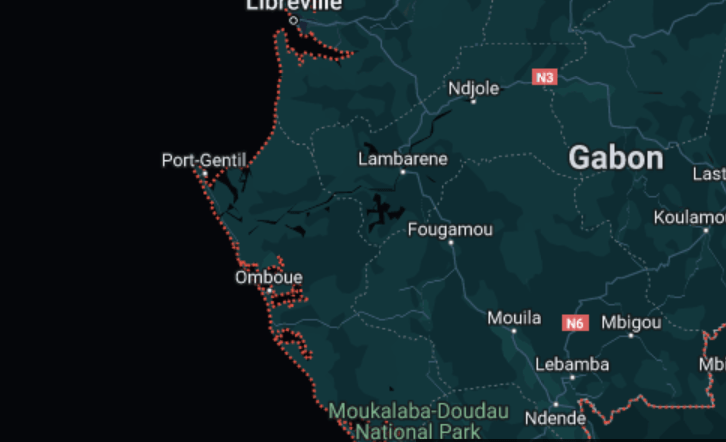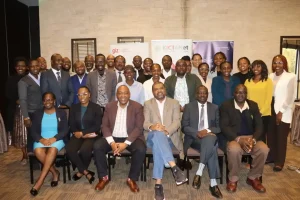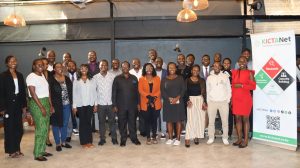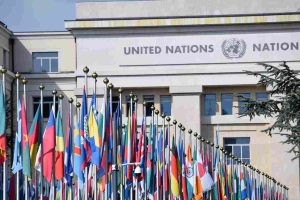Around the world, governments deploy internet shutdowns to interfere with election outcomes and undermine democratic participation. This practice harms human rights — we cannot allow it to become normalized. Ahead of the upcoming election, we urge the Gabonese Republic to #KeepItOn.
We, the undersigned organizations and members of the #KeepItOn coalition — a global network of more than 345 organizations from 106 countries working to end internet shutdowns — urge you, Transitional President of the Gabonese Republic, Brice Clotaire Oligui Nguema, to ensure that the internet, social media platforms, and all other communication channels remain open, secure, and accessible to all before, during, and after the country’s upcoming presidential elections taking place on April 12.
As the people of Gabon prepare to vote, your government must adopt and prioritize measures to guarantee that the election process is inclusive, free, and fair, by providing voters with unfettered access to information and avenues for free expression, both offline and online.
In democratic societies, the internet and social media platforms play a critical role in enabling and enhancing participatory governance and transparency. They help advance national discourse and communication, enable access to critical information about election processes and candidates, facilitate reporting and documentation of events and outcomes, and provide an avenue to hold governments accountable for their actions.
Gabon’s history of shutdowns
Activists have documented multiple incidents of shutdowns in Gabon, most recently during the August 2023 elections. As polls closed on August 26, authorities shut down the internet even as they declared Ali Bongo to be the winner. Internet access was only restored on August 30 following a military coup that annulled the election results and deposed the Bongo administration.
Prior to this, in 2021, Access Now and the #KeepItOn coalition documented instances of internet access throttling aimed at suppressing protests against government COVID-related measures. In 2019, Gabonese authorities shut down internet and broadcasting services following an attempted coup. In 2016, the government activated the kill switch in response to protests, clashes, looting, and arrests in the capital, Libreville, following the re-election of former President Ali Bongo.
Internet shutdowns harm human rights
Research shows that internet shutdowns and violence go hand in hand. Shutting down the internet during crises also cuts off access to vital, timely, and life-saving information, and assistance from emergency services. Shutdowns violate fundamental human rights such as freedom of expression and opinion, access to information, freedom of the press, and freedom of peaceful assembly. By disrupting information flows, shutdowns may exacerbate existing tensions, instigate or conceal violence and human rights violations perpetrated by both state and non-state actors, and spur the spread of misinformation.
Shutdowns make it extremely difficult for journalists to carry out their work, thereby denying people both inside and outside of the country access to credible information. Human rights defenders, election observers, civil society actors, and other stakeholders rely on the internet to monitor and report on elections, facilitating transparency and openness in the democratic process.
Internet shutdowns also interfere with people’s livelihoods, costing national economies as well as individual businesses, companies and public and private institutions billions of dollars.
Internet shutdowns contravene the law
The Gabonese Republic’s constitution, as well as regional and international frameworks to which Gabon is a signatory, such as the legally-binding International Covenant on Civil and Political Rights (ICCPR) and the African Charter on Human and People’s Rights (ACHPR), all provide for the protection and promotion of the rights of freedom of opinion and expression, assembly, and access to information, offline and online. In March 2024, as a response to the increasing number of election-related shutdowns in Africa, the African Commission on Human and Peoples’ Rights (ACHPR) adopted resolution 580 of 2024, recognizing the importance of internet connectivity to the realization of free, fair, and credible elections as a tenet of democracy. Among other things, the resolution urges state parties to ensure open and secure internet access before, during, and after elections, “including ensuring that telecommunications and internet service providers take adequate steps to provide unrestricted and uninterrupted access.” It also specifically calls on African Union member states to refrain from implementing internet shutdowns before, during, and after elections.
Moreover, the UN has affirmed that “blanket internet shutdowns and generic blocking and filtering of services are considered by United Nations human rights mechanisms to be in violation of international human rights law.”
Telecom companies must respect human rights
Under the UN Guiding Principles on Business and Human Rights and the OECD Guidelines for Multinational Enterprises, telecommunications companies and businesses have a responsibility to respect human rights, prevent or mitigate potential harms, and provide remedy for any harms they cause or contribute to.
Telecommunications companies and internet service providers (ISPs) operating in Gabon — including Moov Gabon, Gabon Telecom, and Airtel Gabon — must commit to providing high-quality, open, and secure access to the internet and digital communication tools throughout the upcoming elections and beyond. Internet shutdowns — whether in Gabon or other countries — violate human rights and can never be justified. We encourage Gabonese enterprises to integrate the UN Guiding Principles and OECD Guidelines for responding to censorship and network disruption requests in all markets where they operate.
Our recommendations
Ahead of, during, and beyond the upcoming elections, we urge you to:
- Publicly assure the people of Gabon that the internet, including social media and other digital communication platforms, will remain open, accessible, and secure across Gabon;
- Order internet service providers to guarantee high-quality, secure, and unrestricted internet access; and
- Direct internet service providers to keep people informed of any potential disruptions, and to take all reasonable steps to fix any identified disruptions likely to impact their quality of service.
Please let us know how the #KeepItOn coalition can support you in upholding open, fair, and accessible internet access for all.
Signatories:
- Access Now
- Activate Rights
- Afia-Amani Grands-Lacs
- Africa Internet Rights Alliance (AIRA)
- Africa Open Data and Internet Research Foundation (AODIRF)
- African Freedom of Expression Exchange (AFEX)
- AfricTivistes
- Bloggers Association of Kenya (BAKE)
- Center for Media studies and Peacebuilding (CEMESP-Liberia)
- Committee to Protect Journalists (CPJ)
- Common Cause Zambia
- Computech Institute
- Digital Access
- Digital Grassroots (DIGRA)
- Digital Woman Uganda
- FORUMVERT
- Human Rights Foundation
- Human Rights Journalists Network Nigeria
- International Press Centre (IPC)
- Internet Governance Tanzania Working Group (IGTWG)
- Internet Society chapitre de la RD Congo
- Jonction, Senegal
- KICTANet
- Kijiji Yeetu Africa
- Life campaign to abolish the death sentence in Kurdistan
- Media Foundation for West Africa (MFWA)
- Media Rights Agenda
- Office of Civil Freedoms
- OONI (Open Observatory of Network Interference)
- Opening Central Africa Coalition
- Organization of the Justice Campaign
- Paradigm Initiative (PIN)
- Penplusbytes
- Radio Rakambia TLS
- Reclaiming Spaces Initiative Uganda
- Robert F. Kennedy Human Rights
- Sassoufit collective
- SMEX
- Tech & Media Convergency (TMC)
- Tournons La Page
- Ubunteam
- West African Digital Rights Defenders Coalition
- Wikimedia Community Usergroup Uganda
- Women Empower and Mentor All CBO (WEmpower)
- Women of Uganda Network (WOUGNET)
- YODET
- Youths and Environmental Advocacy Centre (YEAC-Nigeria)
- Zaina Foundation
![]()




